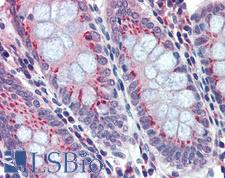Login
Registration enables users to use special features of this website, such as past
order histories, retained contact details for faster checkout, review submissions, and special promotions.
order histories, retained contact details for faster checkout, review submissions, and special promotions.
Forgot password?
Registration enables users to use special features of this website, such as past
order histories, retained contact details for faster checkout, review submissions, and special promotions.
order histories, retained contact details for faster checkout, review submissions, and special promotions.
Quick Order
Products
Antibodies
ELISA and Assay Kits
Research Areas
Infectious Disease
Resources
Purchasing
Reference Material
Contact Us
Location
Corporate Headquarters
Vector Laboratories, Inc.
6737 Mowry Ave
Newark, CA 94560
United States
Telephone Numbers
Customer Service: (800) 227-6666 / (650) 697-3600
Contact Us
Additional Contact Details
Login
Registration enables users to use special features of this website, such as past
order histories, retained contact details for faster checkout, review submissions, and special promotions.
order histories, retained contact details for faster checkout, review submissions, and special promotions.
Forgot password?
Registration enables users to use special features of this website, such as past
order histories, retained contact details for faster checkout, review submissions, and special promotions.
order histories, retained contact details for faster checkout, review submissions, and special promotions.
Quick Order
PathPlusTM BACE2 Antibodies
BACE2 (Beta-secretase 2, Memapsin-1) is an aspartic protease and membrane glycoprotein that generates amyloid beta peptide by cleaving the amyloid precursor protein. It also functions in the melanogenesis of melanocytes by cleaving PMEL17, the luminal domain of which is released to form amyloid fibrils in the melanosome amyloid matrix. In the brain, BACE2 is thought to be involved in neuroinflammation, processing various substrates involved in inflammatory response such as VCAM1. In the mouse brain, it is found in populations of oligodendrocytes, neurons and astrocyte-like cells in lateral ventricles, and has normally low expression that increases during inflammation (Voytyuk, 2018). BACE2 is a target of inhibition therapies in Alzheimer’s disease due to its direct action to generate amyloid beta peptides, which aggravates symptoms and contributes to progression. In immunohistochemistry, BACE2 has generally low cytoplasmic positivity in the brain, muscle, gastrointestinal tissue, skin, the prostate and a few other tissues.
References: Proc Natl Acad Sci U S A. 2013 Jun 25;110(26):10658-63, PMID: 23754390; Cytogenetics and Cell Genetics. 89 (3–4): 177–84, PMID: 10965118; Voytyuk et al. Life Sci Alliance. 2018 Feb 15;1(1):e201800026, PMID: 30456346; JCI Insight. 2019 Jan 10; 4(1): e123431, PMID: 30626751;
1 PathPlusTM Antibody

☰ Filters
Products
Antibodies
(1)
Type
Primary
(1)
Target
BACE2
(1)
Reactivity
Human
(1)
Application
IHC
(1)
IHC-P
(1)
WB
(1)
ELISA
(1)
Host
rabbit
(1)
Product Group
PathPlus Neuro
(1)
Isotype
IgG
(1)
Clonality
polyclonal pc
(1)
Format
Unconjugated
(1)
Publications
No
(1)

Neuroscience
BACE2 Rabbit anti-Human Polyclonal Antibody
Human
ELISA, IHC, IHC-P, WB
Unconjugated
50 µg/$375
Viewing 1-1
of 1
product results











